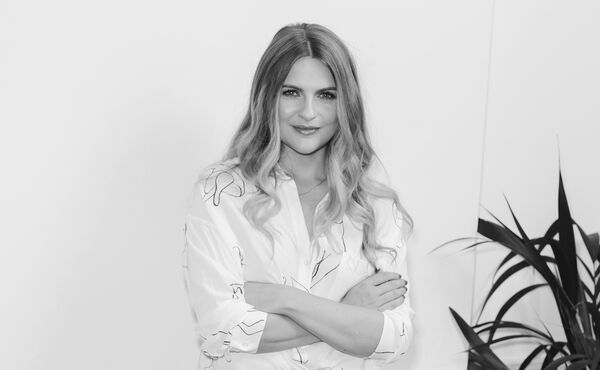Is natural the right skincare route for you? We help you navigate your own path.
Collectively we, as consumers, are making a shift towards more natural beauty products, we’re becoming more conscious about what we apply to our skin and the effect the products we use have on the planet. “We want to know what ingredients are going into our bodies, but also what we put onto our skin. Food and wellness trends are trickling into the skincare world because, as we know, the mind, gut and skin are all connected,” explains Megan Felton, co-founder of expert-led skincare consultancy Lion/ne.
The secret to trusting your natural skincare choices
Now, it’s worth noting, synthetic ingredients aren’t all bad and natural ingredients aren’t all good. Poison ivy is natural, after all. But erring on the side of caution when it comes to synthetics is no bad thing, especially since the average woman slathers on 168 chemicals every day. Looking to expert formulators of natural skincare will ensure you get great results, whilst doing your bit for your health and the environment too. When making the switch it’s best to look to well respected natural beauty brands that combine nature and science. As Rituals says, “we strive to use as much natural ingredients as possible and for properties that nature can’t provide or when it’s more environmentally friendly, we choose lab-made alternatives.”
How to find the natural skincare ingredients for you
“The first question to ask yourself when making the shift to more natural, eco-friendly products is—why am I doing it? If it’s to be more conscious about the world then, yes, it makes sense,” says Ksenia Selivanova, co-founder of Lion/ne. “If you believe that natural products are going to be more “nourishing” or “safe” then making the shift is a little more complicated.” The thing is, there are so many great, safe, synthetic skincare ingredients out there, and the same goes for natural. The key is to understand what your skin likes, which takes a little trial and error. “You need to know exactly what type of skin you have, avoid any possible irritants, and choose ingredients wisely, as some of them might be too harsh for your skin!” says Selivanova.
“A lot of skincare brands that label themselves to be natural are focused on antioxidants (vitamin C, E, green tea). These are hero ingredients in the fight against free-radical damage that can lead to premature ageing and photo-damage to the skin. So, as long as your skin can tolerate a product (always patch test, if your skin is sensitive), short-term you may see a brighter more even complexion and longer-term you will reap the benefits of diminished fine lines and wrinkles.”
And remember, “skin is highly impacted by your lifestyle, so if you are making this shift towards more natural products, then it’s likely that you’ll be looking to adopt a healthier lifestyle overall—exercising more, eating healthier, addressing your stress levels. The glow that you will see, will be a reflection of all of these things working together!” says Felton.
Want to shop natural? Here are three things to look out for:
- Educate yourself about natural beauty. Natural and sustainable skincare ingredients, formulations and packaging are a hot topic right now, so there are lots of articles out there to explore before you go shopping. You’re voting with your wallet every time you make a purchase after all.
- Think about what’s important to you—do you care about the planet? In which case, look to companies that are doing their bit to be carbon neutral, sustainable, reducing unnecessary packaging or focusing on recyclable and refillable options.
- As we said, not all synthetics are harmful but some are best avoided such as parabens, phthalates, mineral oil, methylisothiazolinone (MIT), sodium lauryl sulfate (SLS) and microplastics. This could be because they’re not great for your skin, such as SLS which can be drying. Others are detrimental to the environment like microplastics, which cause huge issues for marine life.






